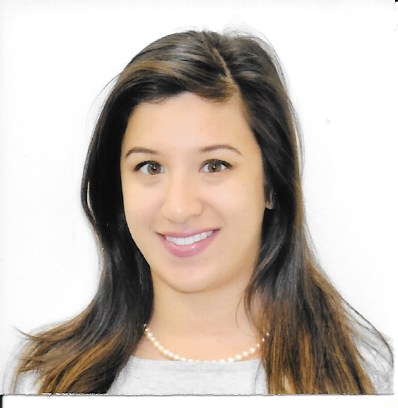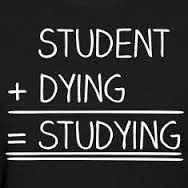Emily Chan is a Ross University graduate who successfully matched into her top choice residency program. However, it wasn’t an easy route to residency. As a Canadian citizen she could only apply to programs that would sponsor her visa. Oh and she also failed USMLE step 1. Here’s her story.
As a close friend, I know you pretty well. Can you tell my followers a little bit about yourself? Who are you professionally? Who are you outside of the hospital?
I’m from the beautiful area of Niagara Falls, Canada. True to stereotype, I am polite, love maple syrup, and say “eh” often. I received my Bachelor’s in biomedical sciences at the University of Montréal – in French.
Professionally, I am a hard worker and a team player. I show up to the office or the hospital with a smile and do my best. People have described me as a problem solver because I will come up with quick solutions for anything.
Outside of the hospital, I indulge in my hobby of cooking and baking. Nothing makes me happier than sharing good homemade food with friends. I also attempt, with varying degrees of success, to justify my paid gym membership even though I hate working out.
You matched into your top choice family medicine program. That’s an amazing accomplishment. Why did you choose to apply to family medicine?
Thank you! It is the most amazing feeling. I knew since I was 12 years old that I wanted to be a family doc. I’ve always loved talking to people and listening to stories about themselves, their families, and their lives. I believe that every personality fits in a certain branch of medicine. How will you know? Trust me, you’ll just feel it, you’ll know. Family medicine was my perfect fit.
Where are you from originally? Did you want to match in the US or Canada? Did you experience any extra hardships trying to match in American programs as a Canadian?
As a Canadian, I knew the odds were not in my favour across the board. Many factors influenced my choice to not pursue a Canadian residency. Canada made it very difficult for me to apply (poor matching stats, inconvenient availability of mandatory tests, and difficulty to obtain Canadian electives). I felt that if my own country made it so challenging for me to come back, then I wasn’t going to put up a fight. Instead, I concentrated all my energy to match in the US. I am very glad my strategic gamble paid off. Yes, you face discrimination because as a resident you will require a visa. I was ineligible to apply to many programs because they did not want to deal with the headache of visas. Disappointing, sure, but I don’t blame them.
Speaking of hardships, I remember the day that we all received our step one scores. You and I, along with three close friends of ours, were living together in Florida. I remember the moment when you came downstairs from your room and told us what every medical student dreads to even think of. That you failed step one. What happened? Why do you think you failed? Were you doing poorly in school? Did it come as a shock to you?
Oh that dreadful day… It was awful! I was so glad to be surrounded by friends like you when I found out I failed. You all rallied around me in a big group hug and reassured me that everything was going to be ok.
Failing Step 1 was a huge blow and I did not expect it at all. Granted, I’m not the strongest student so by no means did I expect to have a stellar score. I just expected to pass. So when I learned I was a few points shy of passing, I was crushed. I had done fine in school up to that point. I never failed any tests on the island, never repeated a semester, and I even passed the comp on the first try. Everything suggested that I’d be fine.
In hindsight, I realized what I thought was enough preparation for the test ended up being insufficient. To tackle Step 1 a second time around, I had to prepare more than ever before.
What was step 2 CK like for you? What steps did you take to make sure you didn’t make the same mistakes again?
Step 2 CK was definitely better than Step 1. I will say, all the self-doubting and insecurities resurfaced when I was prepping for Step 2. I spent 6 months studying and even delayed my test till October – meaning I applied to match without a CK score. As anyone and everyone will tell you, it’s best to apply to match with a full and complete application but mine lacked the CK. It was a risk I was willing to take. I absolutely could not afford to fail a second USMLE exam. Aside from doubling the time I dedicated to study, I got weekly tutor help to go over questions on UWorld that I got wrong. I also made sure that I took plenty of practice tests.
How many programs did you end up applying to? How many categorical? How many preliminary? How many interviews did you end up going on?
I applied to every single FM program in the US for which I was qualified. All categorical, no prelim. I spent a little over $3,100 on my 140+ applications. In the end, I only had 2 interviews. Yes, you read that right, two interviews. One interview was where I did all my core rotations in 3rd year. I got the other interview because I clicked well with residents from that program while attending the AAFP National Conference. I knew from the get go that on paper I was less than stellar so I worked hard on networking. I attended family medicine residency fairs like it was going out of style. In 12 months, I attended 3 residency conferences.
What was match day like for you?
Every medical student will tell you that match day is a nerve-wracking day, and for me, it was no different. I was hoping to match but I also mentally prepared myself that there was a good chance I would not match. When I learned that I successfully matched, I cried tears of joy and relief. Knowing that I beat the odds was the most incredible feeling. It validated all the people along the way who believed in me and said I would make it. I now had proof that outside people (not just family and friends) believed I was worthy of pursuing this profession.
I know we’ve talked a lot about a major weakness in your application but what do you think were your greatest strengths about your application? What set you apart from the other applicants?
Academia has never been my forte. I knew clinical years were my time to shine. It’s what I do best; it’s where I feel most comfortable. I worked diligently and was rewarded with A’s in all my core and elective rotations, except surgery. I genuinely connected with my attendings and they wrote me beautiful letters of recommendation. My strong LORs were undoubtedly a key component to my match success. I’ve always been a people person so interviews came naturally to me. When applying to medical schools, I had 4 interviews and was accepted to all 4. I knew I had strong interview skills. I harnessed that same energy and left my 2 residency interviews feeling confident.
The fact that you failed step one, the proverbial kiss of death to any applicant’s dream of obtaining a residency, but still managed to match into your top choice family medicine program is quite an accomplishment. In closing, what advice would you give to a medical student who failed or didn’t do well on step one?
I want people reading this to say to themselves, if she can match her top choice in her dream specialty with a 203 Step 1 score, a 215 Step 2 score, and only 2 interviews, I can do it too. One failure does not define you. You will encounter people along the road who will encourage you to quit medicine (one of my Ross professors counseled me to pursue non medical careers) or take time off (I was strongly encouraged to delay my graduation date and my match by a year) or give up all together. Take all that advice as fuel to prove them wrong.
Thank you Emily for bravely sharing your inspirational story. You are proof that it is possible to fail USMLE step 1 and still earn a residency. I’m sure it was an emotionally tumultuous path and taught you a lot about yourself along the way.
—


